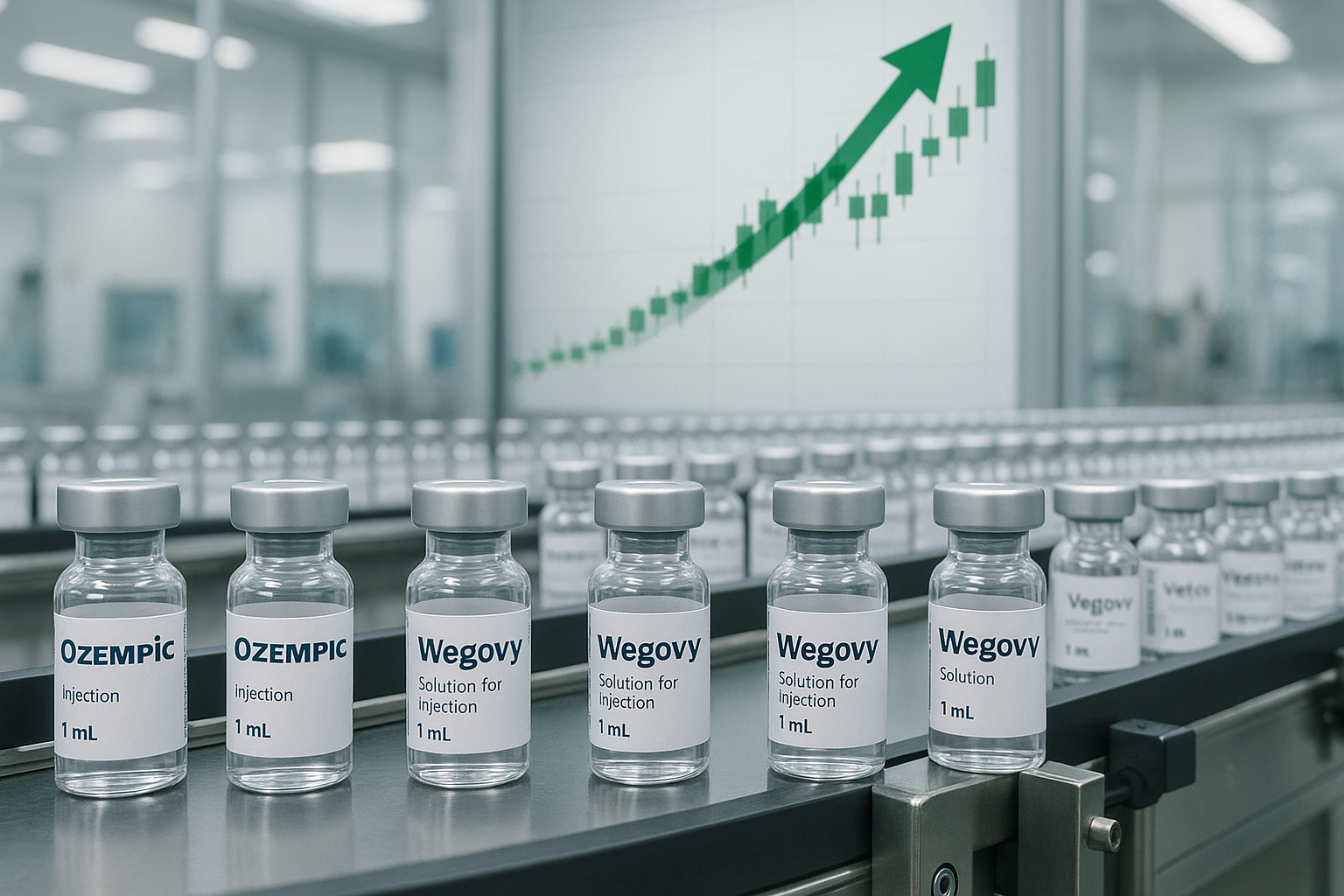Novo Nordisk shares hit another all-time high yesterday, continuing their remarkable run that's made the Danish pharmaceutical company Europe's most valuable firm. The stock has more than doubled since this time last year - and honestly, it's not hard to see why.
The company's GLP-1 medications for diabetes and obesity (Ozempic, Wegovy, and now the newly-approved Semaglide) have become cultural phenomena as much as medical treatments. Demand has been so strong that supply shortages persist despite the company's massive manufacturing expansion.
"We've never seen anything quite like this in the pharmaceutical industry," explained Maria Chen, healthcare analyst at Morgan Stanley. "These medications are addressing two of the most significant health challenges facing developed nations - diabetes and obesity - with unprecedented effectiveness."
The numbers tell the story: Novo Nordisk reported Q2 earnings last week that blew past analyst expectations, with revenue up 32% year-over-year to $9.8 billion. The company raised its full-year guidance for the third consecutive quarter.
What's particularly impressive (and what I think many investors miss) is how Novo Nordisk has managed to dominate despite facing competition from Eli Lilly's similar GLP-1 medications. Rather than cannibalizing each other's sales, the two companies have expanded the overall market faster than anyone predicted.
Looking ahead, Novo Nordisk faces both opportunities and challenges. The company is investing heavily in next-generation treatments - including a promising oral version of semaglutide that could eliminate the need for injections. They're also expanding manufacturing capacity at facilities in Denmark and North Carolina.
But there are headwinds too. U.S. insurance companies have started implementing stricter prior authorization requirements for these expensive medications. And political pressure over drug pricing isn't going away - Medicare's new negotiation powers could eventually target these blockbuster drugs.
For investors who already own shares, the big question is whether this remarkable run can continue. The stock isn't cheap by traditional metrics (it's trading at about 38 times forward earnings), but the market seems to believe the obesity treatment revolution is just beginning.
"Sometimes great companies just aren't great investments if you buy at too high a price," cautioned value investor Warren Buffett at Berkshire Hathaway's annual meeting in May. He didn't specifically mention Novo Nordisk, but the comment raised eyebrows given the stock's meteoric rise.
I think the long-term outlook remains strong - these medications are transforming lives, and Novo Nordisk's pipeline suggests they'll maintain their leadership position. But investors jumping in now should probably temper their expectations after such an extraordinary run.
